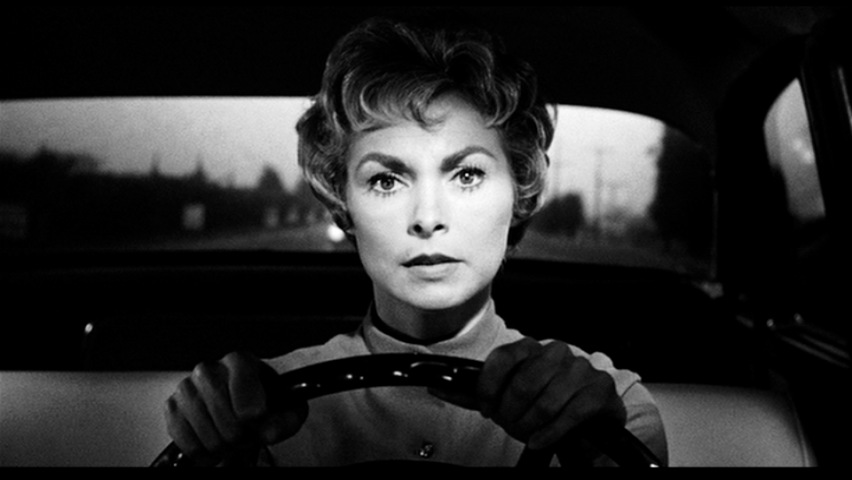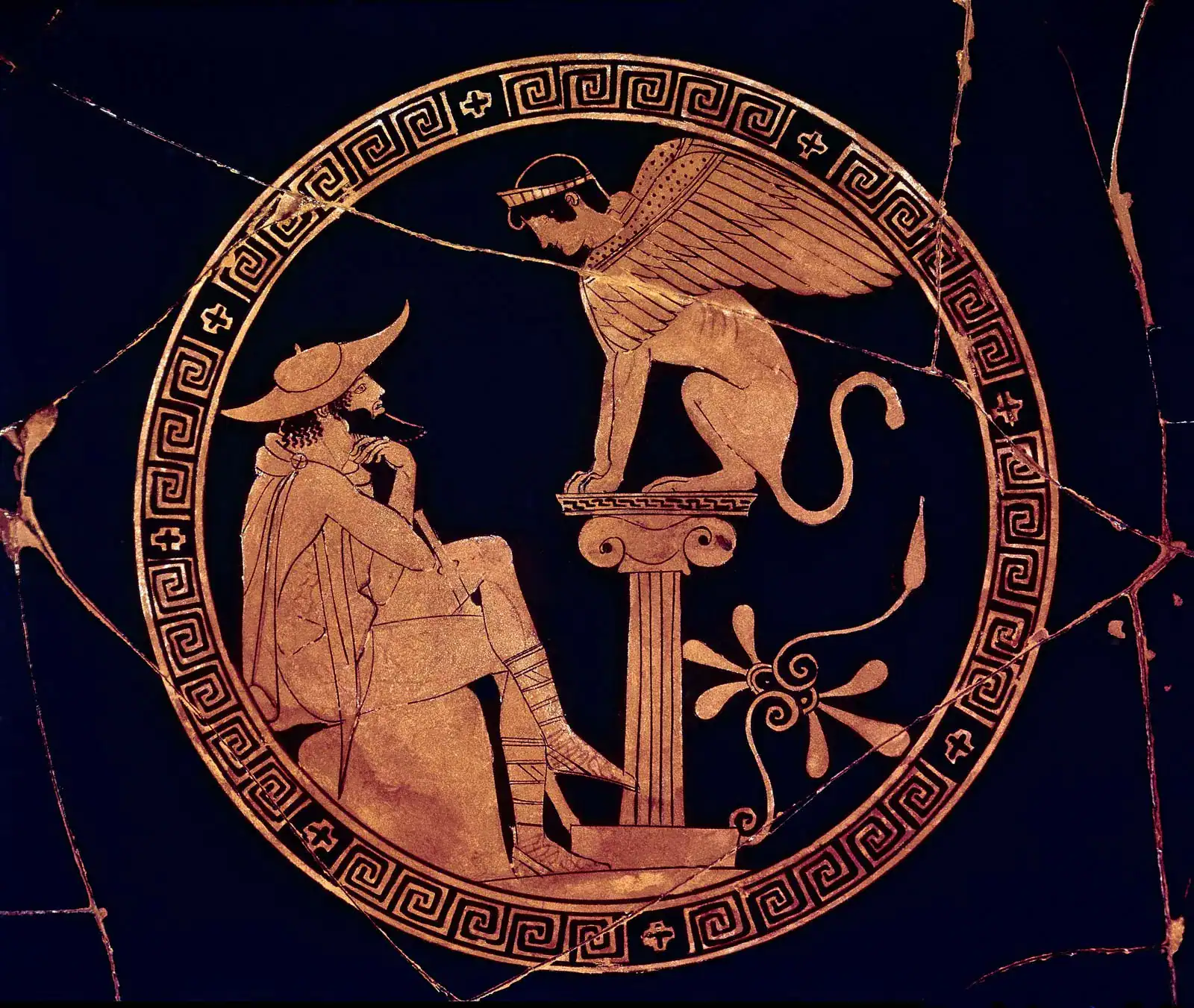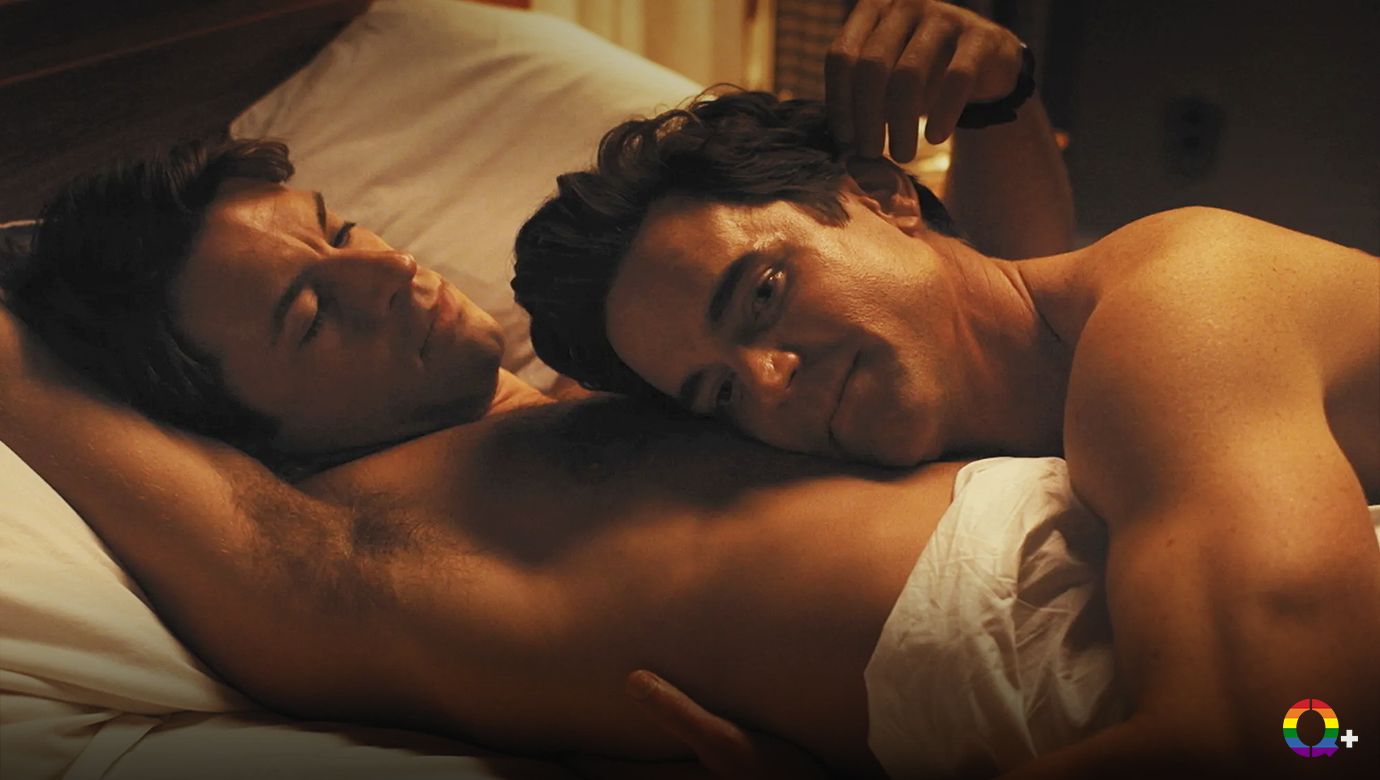Hitchcock spends a long time on Marion Crane’s drive from Phoenix to her boyfriend’s home in California – about 16 minutes of screen time from the start of her journey to its conclusion at the Bates Motel (Psycho is 1:49 in length).
Marion is shown driving through Phoenix where she encounters her boss at a traffic light. We see suspicion on her boss’s face and anxiety on Marion’s. Night falls, and shots with bright lights pass over her face. She spends the night sleeping in her car by the side of the road and is awakened by a highway patrolman, who frightens her (and who also becomes suspicious).
Next, she trades her car for another, and this time both the car salesman and the patrolman are suspicious. She seems “wrong” to them. Then there is a rainstorm during which Marion wanders off the main road and stops at the Bates Motel. All his is accompanied by Bernard Herrmann’s tense and disturbing music.
Travel in road trip movies (I Happened One Night; The Adventures of Priscilla, Queen of the Desert; Planes, Trains, and Automobiles) is an essential ingredient to the storyline. The road trip movie is about the road trip. Psycho is obviously not a road trip movie. What, then, is the point of spending 10% of Psycho‘s running time on Marion’s drive?
A descent into the underworld – the land of the dead – is a theme in Western literature. Protagonists who descend into the underworld go through a dark and fearful passage, and eventually emerge into the land of the dead. Some manage to emerge back into the land of the living (Orpheus, Odysseus, Aeneas, Dante). Nearly all souls who die and enter the underworld stay put.
The poet and musician, Orpheus, has lost his beloved Eurydice (to snake bite!), and begins to enter the underworld to retrieve her. I’ll quote from the libretto for Gluck’s opera, Orfeo ed Eurydice. As Orpheus begins his descent he is surrounded by “Furies,” “specters,” and “angry shades”:
CHORUS
Who is this
who draws near to us
through the gloom of Erebus
in the footsteps of Hercules
and of Pirithous?May the savage Eumenides
overwhelm him with horror,
and the howls of Cerberus
terrify him
if he is not a god.They dance, whirling round Orpheus, to frighten him.
Orpheus then sings a beautiful aria which calms the Furies et al and is allowed to enter the underworld, retrieve Eurydice, and return to the land of the living (where almost immediately Eurydice dies again).
Odysseus on his journey to Ithaca spends a year with Circe, a sorceress, who tells him that he must enter the underworld and speak with the prophet Tiresias who will tell him how to evade the curses of the gods and return home. “Following the instructions given by Circe, Odysseus and his crew sail to the land of the Cimmerians, a place “covered up in mist and cloud” to find the River of Ocean, an area that borders the underworld. Here, Odysseus pours wine and sprinkles barley before sacrificing a sheep.” [Note]
Among the dead, Odysseus discovers his mother who died of a broken heart waiting for her son to come home.
“My child? How did you come here through the darkness
while you were still alive? This place is hard
for living men to see. There are great rivers
and dreadful gulfs, including the great Ocean
which none can cross on foot.”
Marion’s passage from Phoenix to the Bates Motel is dark and fearful. The rainstorm echoes the river Styx (and maybe her $40,000 is akin to the coin given to Charon, the boatman). Marion seems “wrong” to the patrolman and car salesman, literally because of her anxiety, but mythically because she is still alive and shouldn’t be traveling to Hades. The underworld is a terrible place; so is the Bates Motel, which Marion never leaves.




Leave a Reply